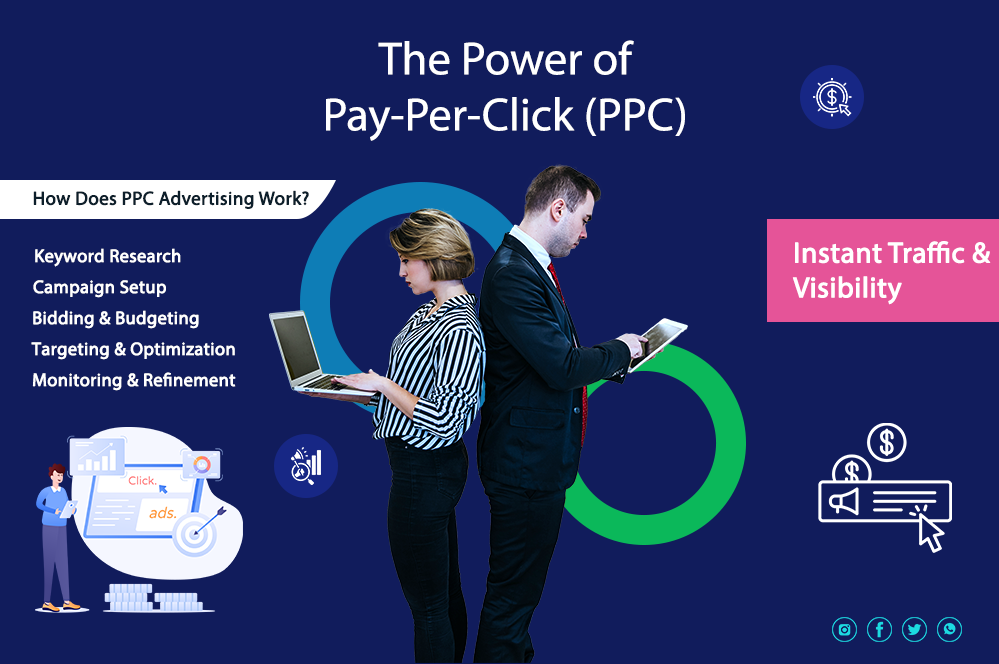
The Complete Guide to Pay-Per-Click (PPC) Advertising
In today’s age of the digital world, businesses must use efficient ways of reaching their target audience, and Pay-Per-Click (PPC) advertising is most likely the most effective tool available. Regardless of whether your business is a small enterprise or a large business, PPC can be used to drive traffic, produce leads, and increase conversions. In this guide, we will talk about what PPC is, how it functions, and how you can use it to grow your business.
What is Pay-Per-Click (PPC)?
PPC is an internet advertisement method where companies compensate for every ad click. In place of attaining visits naturally, firms have the option of buying visits. The technique tends to be utilized on websites such as Google Ads, Bing Ads, and on social sites including Facebook, Instagram, and LinkedIn.

How PPC Works
Keyword Research : Publishers bid on targeted keywords for business.
Ad Auction : Search engines use an auction system where publishers bid against publishers for advertisement space based on cost per click and ad quality.
Ad Placement : The ads with the highest value win and appear on search engine result pages (SERPs) or social network timelines.
User Clicks : When the user clicks on the ad, he is directed to the advertiser’s site, and the publisher is paid for each click.
Conversion Tracking : Business firms monitor the clicks that turn into actual sales or leads.

Benefits of PPC Advertising
Quick Returns : Unlike the long SEO process, PPC gives instant visibility.
Targeted Audience : Target the perfect customers on demographics, interests, and intent to search.
Budget Control : Set campaign or daily budgets to manage costs.
Measurable Performance : Monitor clicks, impressions, and conversions in real time.
Competitive Advantage : Beat competitors with bidding on high-performing keywords

Optimal Practices for a Successful PPC Campaign
Select the best keywords: Utilize Google Keyword Planner to identify high-intent keywords.
Craft Engaging Ad Copy : Develop compelling headlines and descriptions that get clicked.
Landing Page Optimization : Make landing pages relevant and conversion-focused.
Negative Keywords : Prevent irrelevant searches from burning your budget.
A/B Testing : Experiment with different ad variations to determine what performs best.
Maintain and Make Changes : Continuously analyze your campaign performance and improve your strategy.
Conclusion
PPC advertising is an organization game-changer for companies that want to expand their web presence. With proper implementation, it provides high return on investment and enables companies to reach the intended audience cost-efficiently. New or wanting to enhance existing campaigns, using best practices and staying aware of industry trends will guarantee success. Begin utilizing PPC today and see
your business increase!





 Book call
Book call



